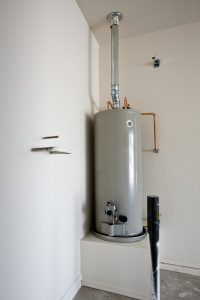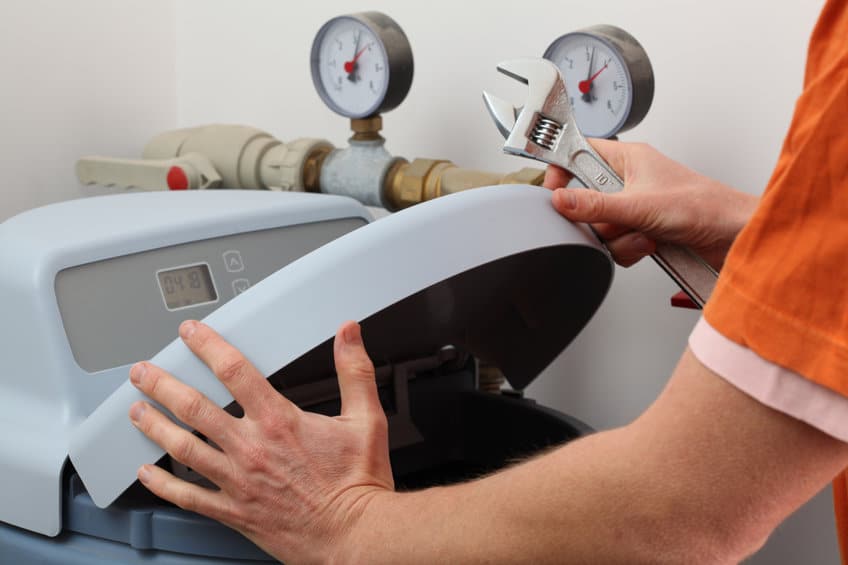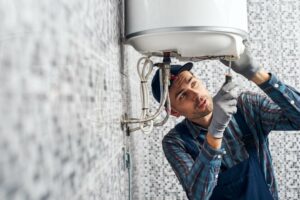
THE BASICS
The basics for water heaters entail a basic examination to look for any symptoms of trouble. These can include (but are not limited to) the following:
- Puddles around the base of the water heater can indicate a serious problem, or something more pedestrian such as a leak in a pipe fitting. Either way, it’s a problem that a trained plumber should take a look at.
- Strange noises. Gurgling, humming and other noises can indicate a number of issues, ranging from build-up on the bottom of the tank to trouble with the pressure relief valve.
- Trouble with hot water. This doesn’t necessarily need any formal checking to confirm. But if you’re not getting sufficiently heated water, if the hot water cuts out sooner than you’d expect, or even if the water is too hot, you may need to have a plumber look at the system.
- The pilot light. Older water heaters may still use a pilot light, and if yours is one of them, you should check it to make sure it’s lit.
If you encounter an issue with your water heater, in most cases, you should call in a plumber rather than attempting to fix the problem yourself.
FLUSH IT OUT
One place you can help your water heater along is by flushing it out, which can help get rid of sediment built up on the bottom of the tank as well as reducing overall wear and tear. You only need a bucket (or similar receptacle) for the water and a length of hose. Follow the steps below:
- Shut off the gas or electrical power to the water heater, as well as the main water line into the tank. You may want to give the water in the tank time to cool after you do so.
- Connect a hose to the tank’s drain valve and place the other end in the bucker or (if possible) a drain line in the house.
- Open the pressure relief valve and allow the water to drain out.
- When the tank is about one-quarter full, turn the water line back on to flush any sediment out of the bottom.
- Turn off the cold water line again, close the pressure relief valve, detach the hose from the drain valve, close the valve and allow the tank to fill back up.
- Turn the gas or electricity back on.
Call BZ Dependable Plumbing & Heating Inc. for water heater service in Bergenfield, NJ.



